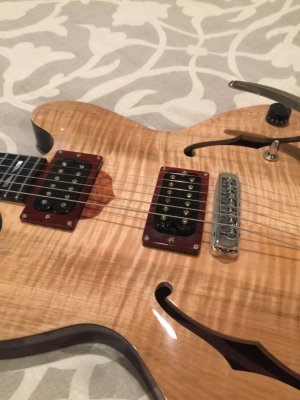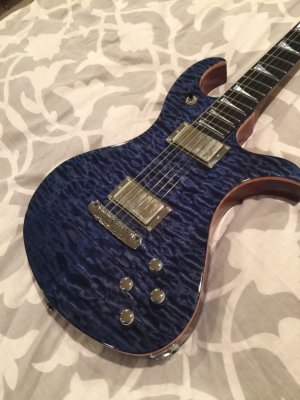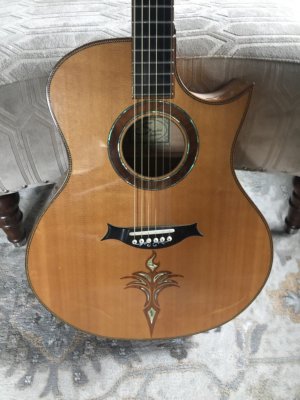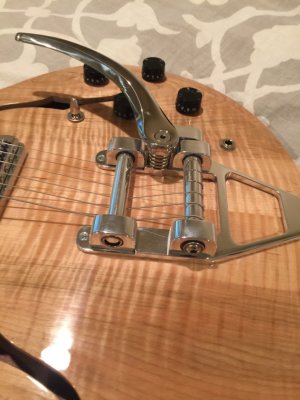- Joined
- Nov 26, 2023
- Messages
- 337
I bought a couple of cheap electric guitars. 1 is by all accounts extremely well made, or at least made with high quality materials, checks nearly all the boxes. The other is very basic. It's a Glarry. Don't any of you dare laugh at me! There's nothing terribly wrong with it, it just needs a lot of new components LOL and setup. For the money it's ... acceptable? But ymmv. The basic structure of a guitar is there, maple, basswood. Crappy hardware but you get what you pay for.
Anyway it's a Strat copy. I like the s body, but lean towards a deeper, harder sound (not metal exactly, but some of that stuff is enticing, I had my metal phase 40 years ago, have no clue what any of the stuff I hear lately is). So I want to change it into a super-Strat. Dual humbuckers, probably change out the tremolo, etc. I know Glarry/Ktaxon/? has models like that, barely have to break a 50 to get one. But the components will still be crap. So I'll do what I have to with this I figure.
So here's the question. Since I'll wind up tossing the pick guard, what I want to do is fill in that cavity (and the middle pickups cavity) with blocks of wood. I know a lot of fuss when I can just buy something to cover all that up. Oh and fill in the rear cavity with wood also, as I won't be needing that once I replace the bridge. Glarry claims the body is basswood, and clearly an Asian variety. So would pieces of local (?) pine be suitable? I've had pine laying around the house for years. I would imagine it's dry enough. Question is will the guitar's (basswood) and (local pine) expand with the weather at similar rates and not cause problems?
This may sound like a lot of worry for nothing. But over a year ago I took an interest in MUCH older stringed instruments, lute, gittern, citole, etc. And eventually want to make my own. Learning a bit about wood now , which I know next to nothing about, wouldn't hurt.
What about glues? Would silicone be a better bonding agent as it seems it's more flexible then Elmer's wood glue (if that's even acceptable).
Anyway it's a Strat copy. I like the s body, but lean towards a deeper, harder sound (not metal exactly, but some of that stuff is enticing, I had my metal phase 40 years ago, have no clue what any of the stuff I hear lately is). So I want to change it into a super-Strat. Dual humbuckers, probably change out the tremolo, etc. I know Glarry/Ktaxon/? has models like that, barely have to break a 50 to get one. But the components will still be crap. So I'll do what I have to with this I figure.
So here's the question. Since I'll wind up tossing the pick guard, what I want to do is fill in that cavity (and the middle pickups cavity) with blocks of wood. I know a lot of fuss when I can just buy something to cover all that up. Oh and fill in the rear cavity with wood also, as I won't be needing that once I replace the bridge. Glarry claims the body is basswood, and clearly an Asian variety. So would pieces of local (?) pine be suitable? I've had pine laying around the house for years. I would imagine it's dry enough. Question is will the guitar's (basswood) and (local pine) expand with the weather at similar rates and not cause problems?
This may sound like a lot of worry for nothing. But over a year ago I took an interest in MUCH older stringed instruments, lute, gittern, citole, etc. And eventually want to make my own. Learning a bit about wood now , which I know next to nothing about, wouldn't hurt.
What about glues? Would silicone be a better bonding agent as it seems it's more flexible then Elmer's wood glue (if that's even acceptable).




